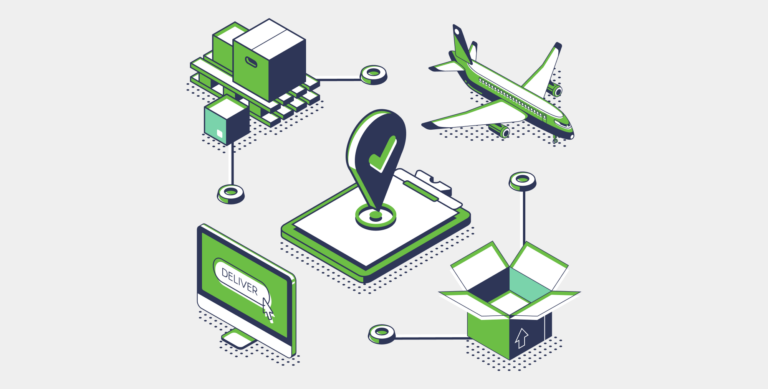Simplifying Customs Clearance: Tips for International Shippers from DHL & ShipStation

This blog was authored by George DuChaine, Senior Manager of Export Compliance at DHL.
The world of customs clearance can be daunting for first-time international shippers. Making sure your goods clear customs without a hitch is essential. Any delay will impact customers receiving their orders on time. These delays can lead to a bad customer experience, making it less likely they’ll shop with you again. The best way to avoid potential customs delays is to fill out your customs forms without errors. But how do you prepare forms you aren’t familiar with?
ShipStation partnered with DHL for a webinar to provide insight on customs forms to help. The good news is, our recap should help ease your mind about international shipping.
Understanding Customs Basics: The Customs Trinity
To understand customs clearances, we’ve created what we call the “Customs Trinity.” The Customs Trinity consists of Classification, Valuation, and Rules of Origin. Classification includes information like your product description and HS codes. Valuation includes the taxes and duties for a shipment. And finally, Rules of Origin determine the product’s country of origin. The best chance of clearing customs is to correctly describe the value and identify your products.
Classification: Describing your products
Describing your goods isn’t just a formality; it plays a crucial role in the clearance process. Don’t use vague terms like “apparel” when describing your products. Go for specific descriptions like “yellow women’s t-shirt made out of 100% cotton” instead. This provides a quick view of the nature, purpose, and composition of your goods. The right information will help you calculate the correct duties and taxes and locate your product’s HS Code.
How to find an HS Code
Harmonized System or (HS) codes are numerical codes developed by the World Customs Organization (WCO). These numbers are universal, prevent potential language barriers, and work to simplify inspections. HS Codes also help to identify any potential import restrictions or licensing requirements. However, it’s important to note that each country has its own duty rate table — aka the duties and taxes for products will vary.
Don’t enter a different HS code for lower taxes and duties though. The wrong HS code can misrepresent your product and lead to fines and penalties as well as demands for additional duties. If you need help finding the correct HS codes for your product, DHL Express has developed a tool for customers called MyGTS. Customers can use this tool along with other resources, like customs rulings research or consultation with a customs lawyer, to determine the correct HS code.
Valuation: How to calculate duties and taxes
Some shippers try to cut their duties and tax costs by undervaluing their shipments. We strongly advise against this. Declare the true value of the goods sold on the commercial invoice, with 100% transparency. You may also need to include freight charges or insurance on your customs forms as well; it’ll depend on the International Commercial Terms, or Incoterms, used.
If the customs authorities believe the value is wrong, they may contact you or your customer. Customs authorities typically request proof of payment or a receipt; the receipt will prove that the declared value matches the cost of the item.
If the declared value and the actual cost differ, you’ll be required to pay the correct duties and taxes. You may also be fined and could be subject to an audit of your previous shipments which may result in additional penalties and duty payment demands. ShipStation customers can use international shipping features to save customs information about products to avoid extra work.
Finally, check the rules set by your shipment’s destination country. The World Trade Organization has set international rules. Always review the restrictions and guidelines before shipping to a specific country.
Rules of Origin: Where is your product from?
Just because an item shipped from a country doesn’t mean it was made there. For example, say a product is manufactured in China and then shipped to the United States. If the product needs to be shipped back to China, what would its country of origin be? Even though the product is shipping from the US, China would still be the product’s origin country. The exception would be if the product was significantly transformed or altered in the US.
Confirm Customer Information
Your customer’s address also plays a crucial role in clearing customs. Incorrect customer details can lead to delays, extra costs, and even potential penalties. Double-check all the information provided by your customers before shipping. This includes their full name, address, and contact details.
Confirming their information before shipping their package will streamline the customs process. And, timely deliveries lead to an increase in customer satisfaction. ShipStation’s Address Validation tool helps flag and cross-reference the addresses you enter. There are times when your customer may not respond immediately or at all, and the Address Validation feature makes it easy to check addresses before shipping.
A timely customs experience encourages repeat customers. And, accurate customs forms are the best place to start. Remember the Customs Trinity. Classify your products with HS codes and product descriptions. Valuate your product with the correct duties and taxes. Enter an accurate country of origin. Take the complexities out of customs with ShipStation and DHL Express.
Disclaimer
International shipping regulations are subject to change and may vary depending on your specific circumstances. For comprehensive legal advice regarding customs clearance and international shipping, please consult with a qualified attorney who can help you navigate the complexities of customs regulations, ensure compliance, and minimize potential risks.
This webinar and blog are for informational purposes only. It does not constitute regulatory or legal advice and shippers are recommended to seek their own legal or compliance counsel. DHL assumes no responsibility for the accuracy of the information contained herein and DHL does not provide specific regulatory or legal advice to customers unless contracted to do so.


